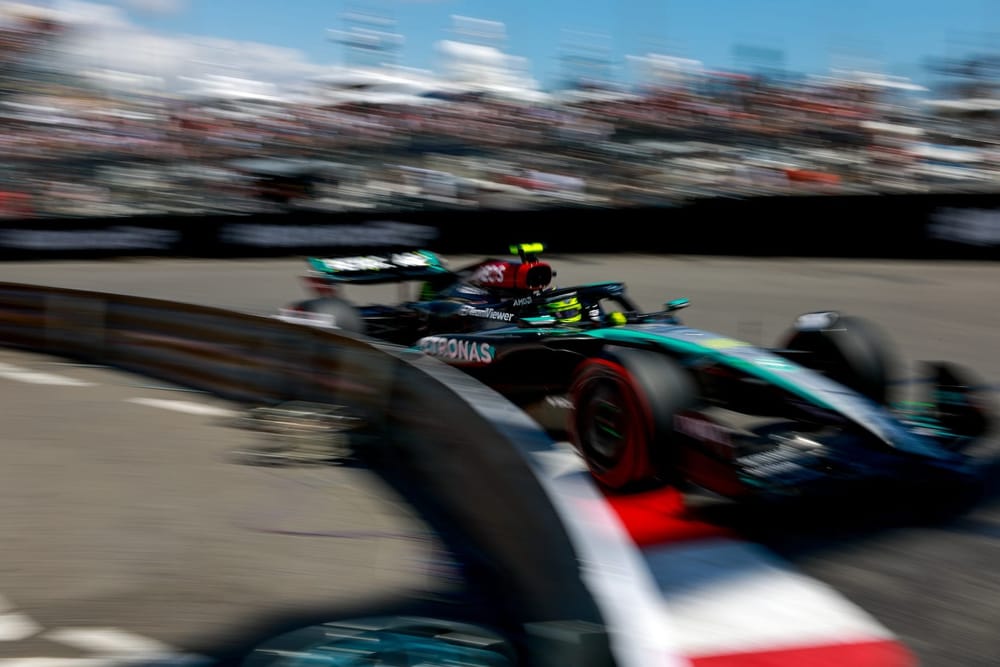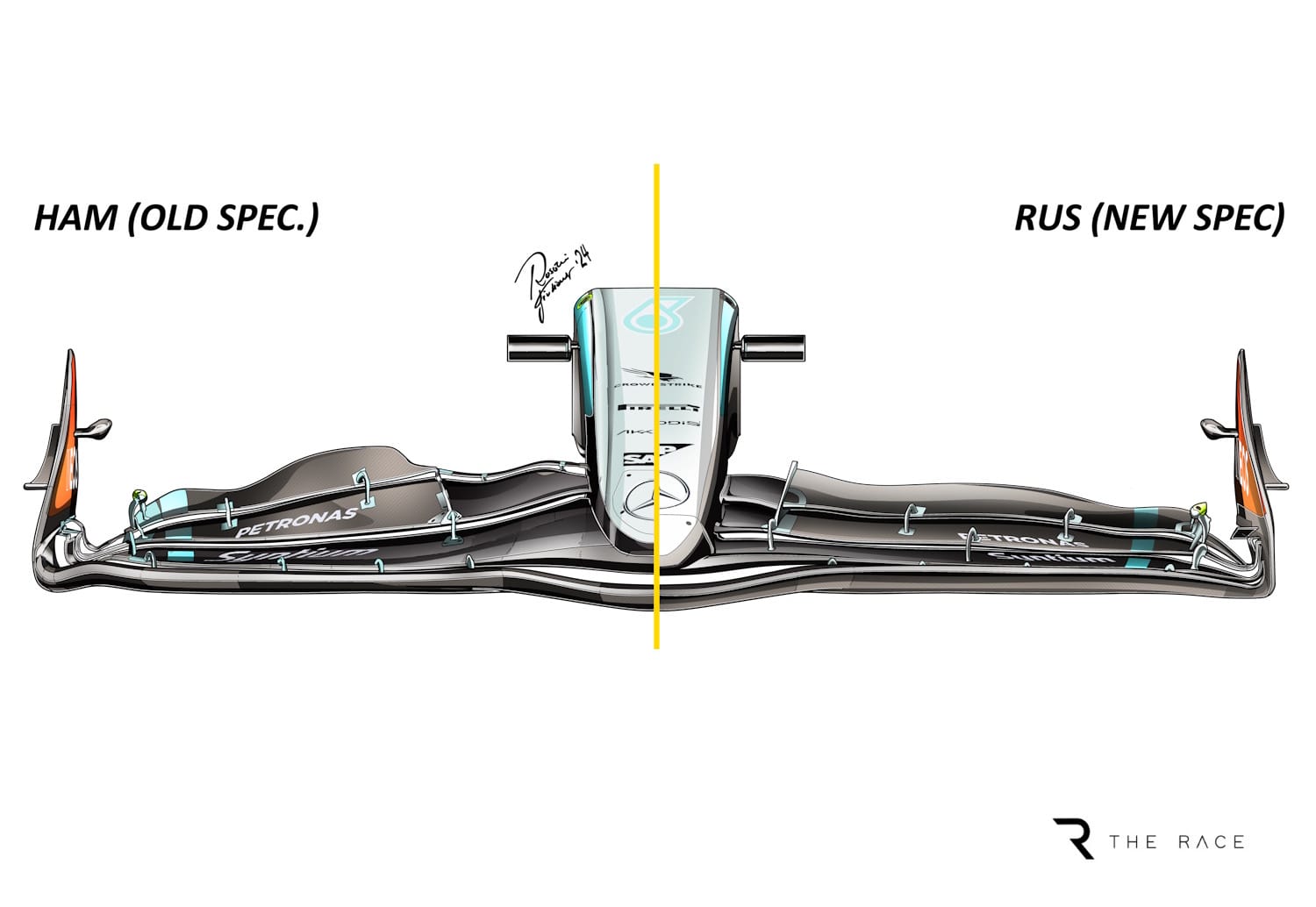Up Next

Lewis Hamilton’s admission that he does not expect to outqualify team-mate George Russell for the rest of 2024, and the implication something costs him performance, was a surprising sub-plot during the Monaco Grand Prix weekend.
Hamilton had been on top in Mercedes’ intra-team battle through all three practice sessions in Monaco before Russell suddenly established a small but decisive advantage in the three qualifying segments.
Russell qualified ahead by less than a tenth, worth two positions on the grid and therefore in the race given the order was the same, to extend his Saturday advantage over Hamilton in 2024 to 7-1.
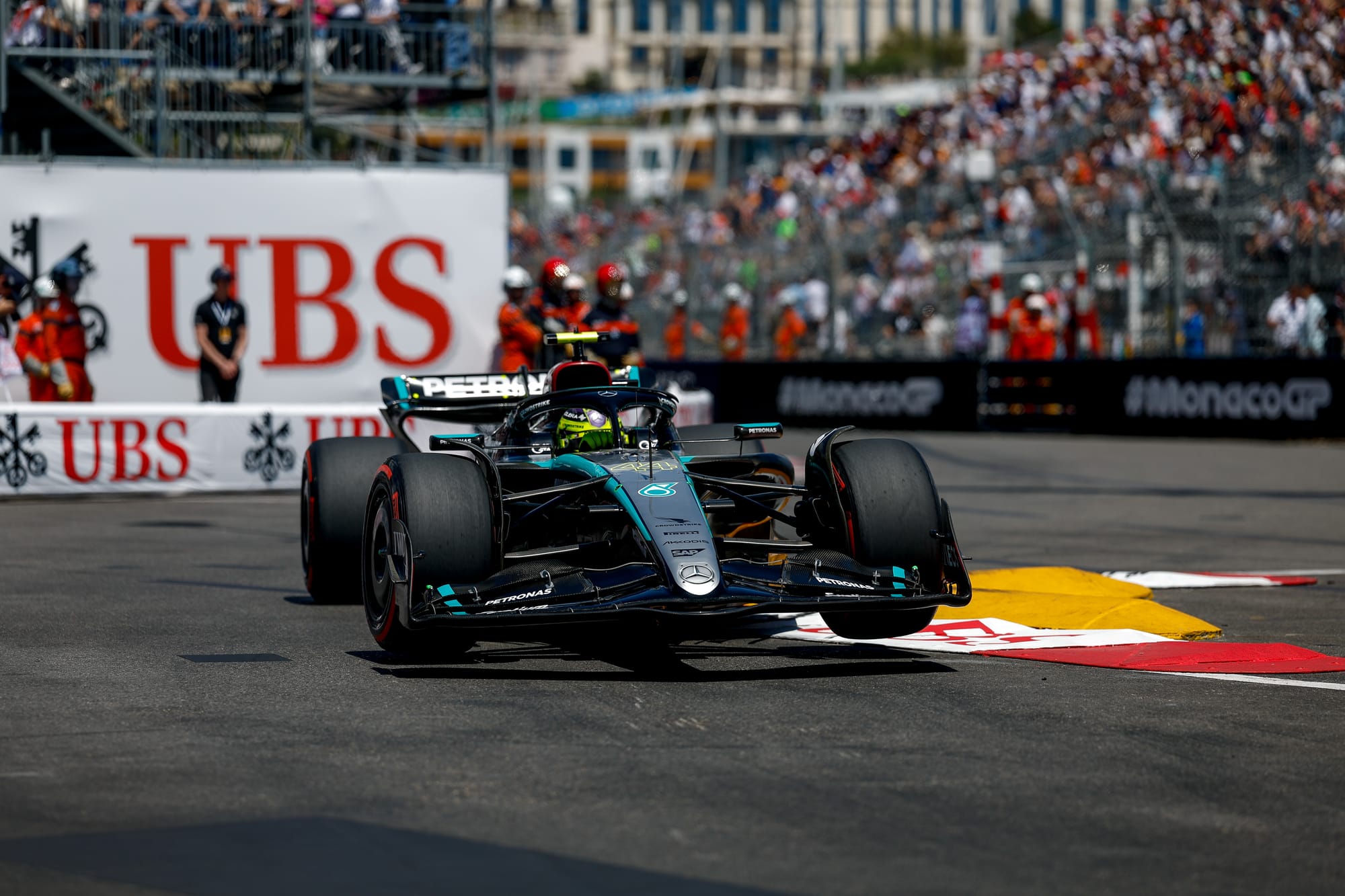
What followed was a range of pessimistic post-qualifying comments from Hamilton in Monaco. He said “I don't know if it's a turn-down or something, but performance comes away from my car for some reason”, and when asked by The Race if it was the same frustration of Mercedes losing competitiveness relative to the other teams, Hamilton replied: “I expect it now. Every time I get to qualifying, I already know that I'm going to lose a couple of tenths.”
In the context of other answers, though, Hamilton meant he loses out to Russell not just the opposition. It was to Sky Sports F1 that Hamilton said “I don't anticipate being ahead of George in qualifying this year”, was asked why, and responded: "We will see."
That was the most overt Russell reference of the bunch. Between that and the “turn-down” remark, it was widely inferred that Hamilton feels like he might be being held in some way. Hamilton is leaving Mercedes at the end of the year to join Ferrari while Russell has been held up as the future of the team.
But after the grand prix on Sunday, when asked by The Race what he had meant with his various post-qualifying comments, Hamilton did not exactly double down and if anything, it felt like he was distancing himself from how the comments had been interpreted.
“I mean look, I don’t know,” he said. “Ultimately, I just try and give my all every weekend, and push and give everything for this team.
“And I’m really so happy to see the team’s bringing upgrades and looking forward, to see the last three races we’ve had upgrades, this weekend, George’s one was a positive as well.
“So, I’ll get that next week and hopefully over the next few races we have some more and we can continue to push and try and close that gap.”
That had the air of Hamilton not wanting to add fuel to the fire, and perhaps recognising that his post-qualifying remarks - which are partially fuelled by adrenaline given how close to the session drivers speak to the media - implied something that is not actually a valid concern.
Hamilton would not be the first to succumb to a bit of competitive paranoia, and the simplest answer to what happened on Saturday in Monaco is that Russell had a faster car spec by virtue of having the new front wing first and finally pieced it together having perhaps underperformed relative to Hamilton in practice.
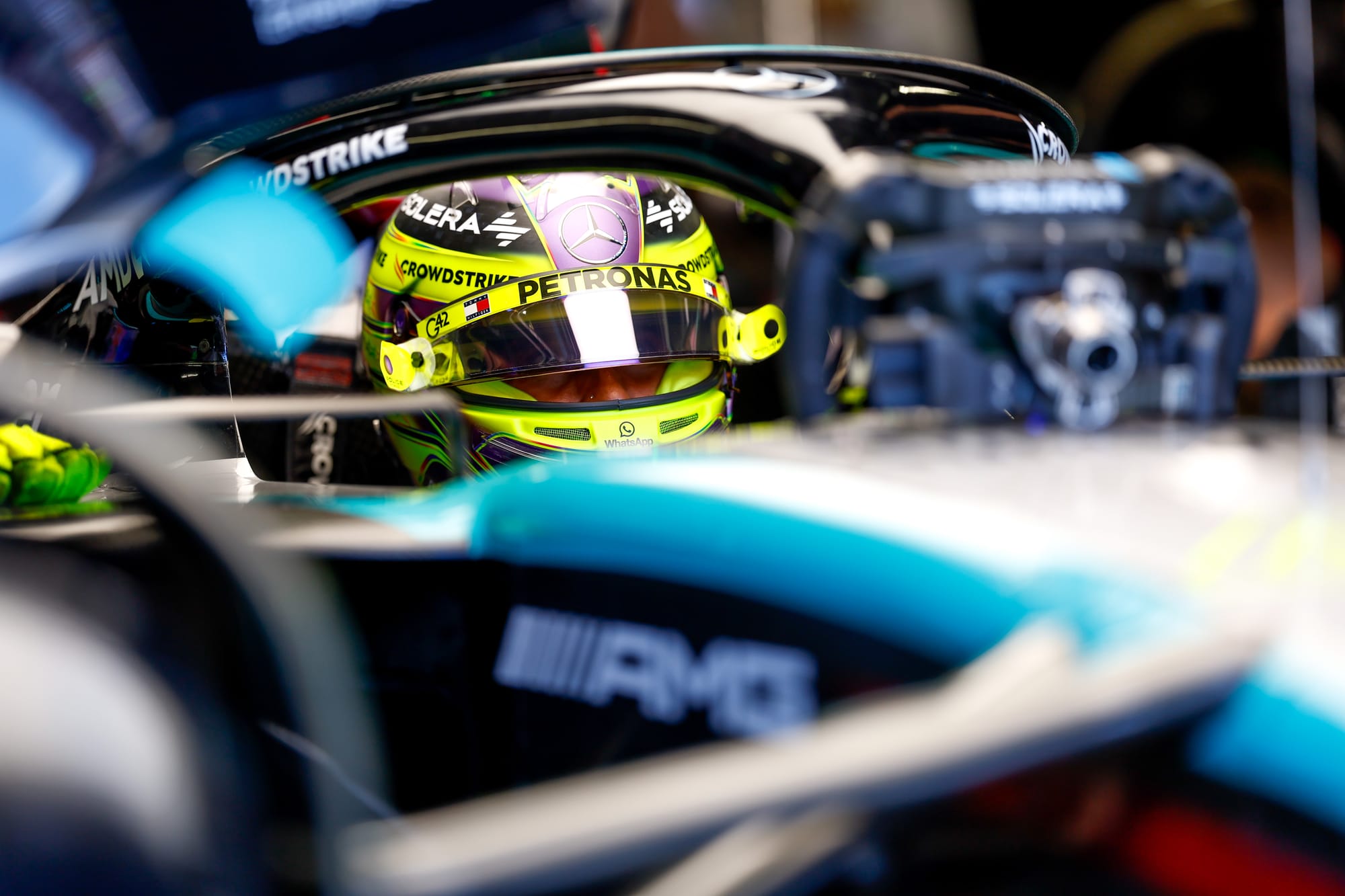
It would make little sense for Mercedes to actively favour one driver given it is fighting for nothing in 2024, let alone deliberately hold back another. And Mercedes team boss Toto Wolff indicated after the race that Hamilton’s comments were understandable and just a reflection of a competitive mindset.
“Aren't all drivers a bit sceptical at times?” Wolff asked.
“As a team we've demonstrated, even in the most tense competitions between team-mates, that we’re trying to always balance it right and be transparent and fair.
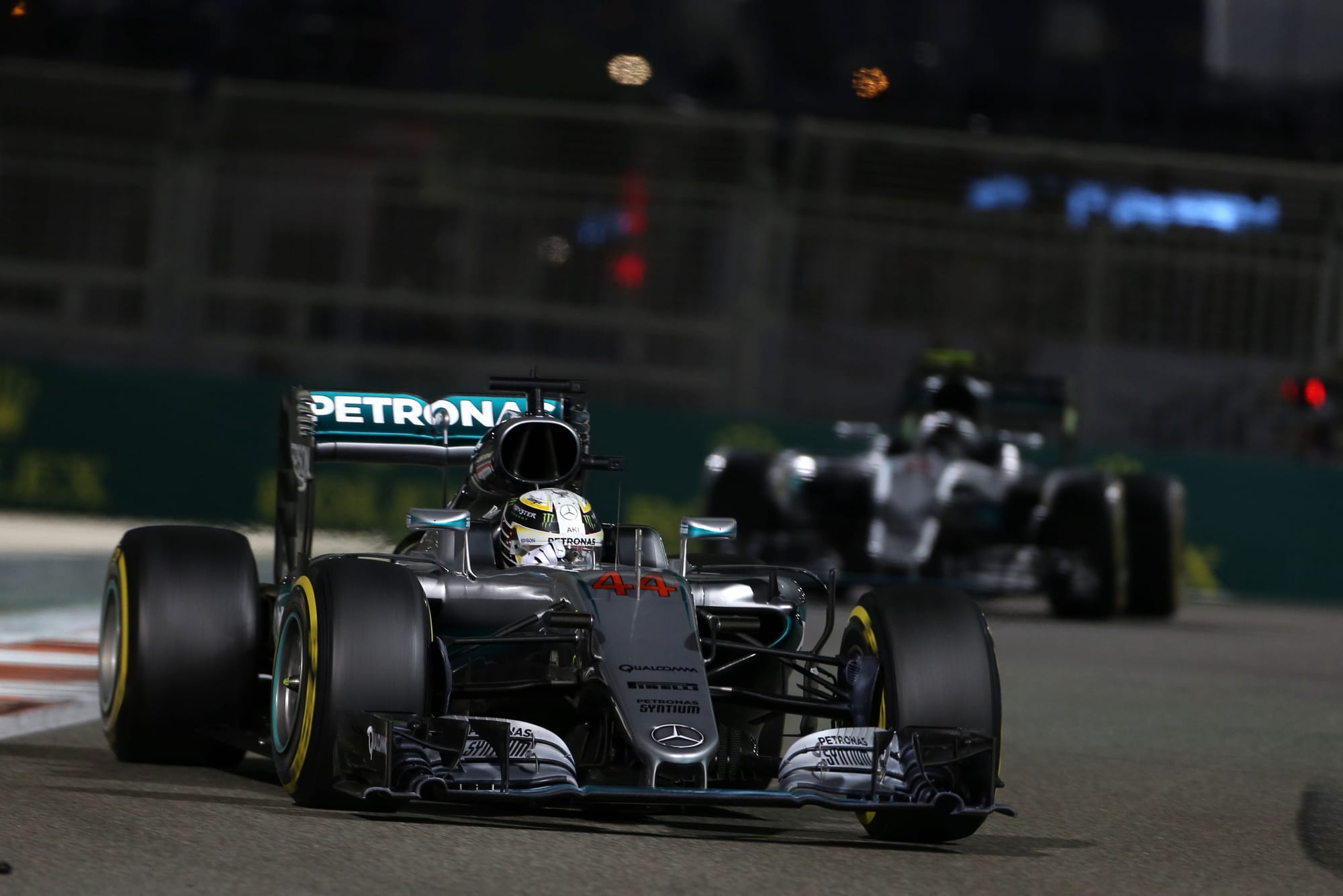
“I think there was not a moment, apart from 2016 Abu Dhabi, where we tried to manage a race. We haven't done since then.
“But I can understand as a driver, you want the best out of yourself, and the team, and sometimes when it's going against you, you can question [what’s going on].
“But as a team, we're 100% on a mission of dealing with two drivers, [give them] the best possible cars and best possible strategies and support.”
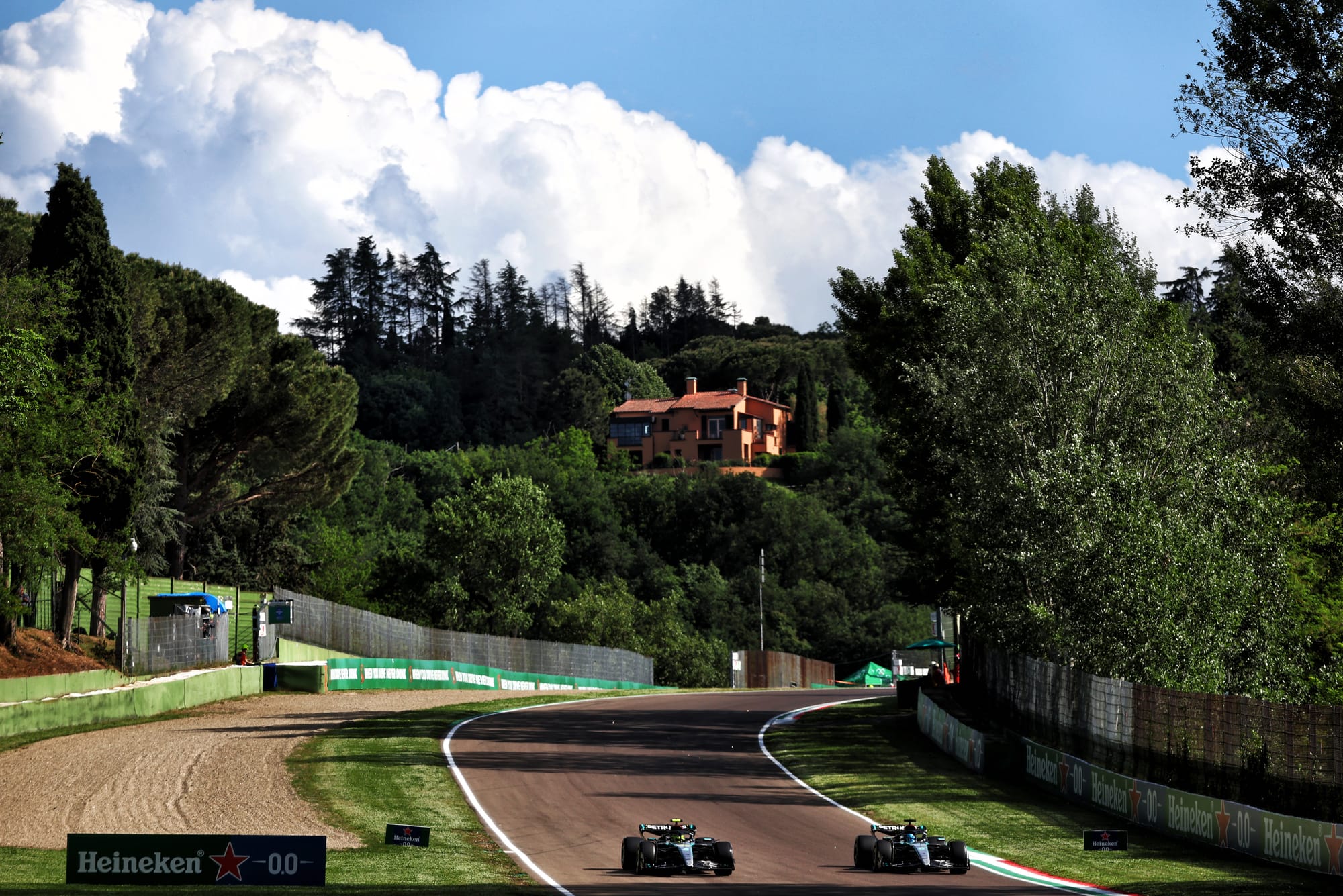
Wolff admitted that things can get “tense” between drivers and teams but does not believe that is specific to Hamilton’s situation - of leaving at the end of the year - and stressed “we’re trying to get the best out of the relationship”.
But one area where Wolff admitted Mercedes had let Hamilton down in Monaco was communication with him in the race’s crucial pitstop phase.
Russell, Max Verstappen and Hamilton circulated in fifth, sixth and seventh for the duration of the grand prix as Mercedes enjoyed the rare treat of beating Red Bull in 2024.
But it could potentially have done so with both cars had Hamilton been told his outlap was critical, rather than normal, as he might have been able to leapfrog Verstappen.
“That was a miscommunication first between us on the pitwall, that got it wrong,” said Wolff.
“It should have been an outlap critical, try to undercut. But then there was a debate if any lap would be enough on the new tyres, so the message he got was, at best confusing, but probably wrong.
“In summary the wrong message to Lewis and the team's fault.”

